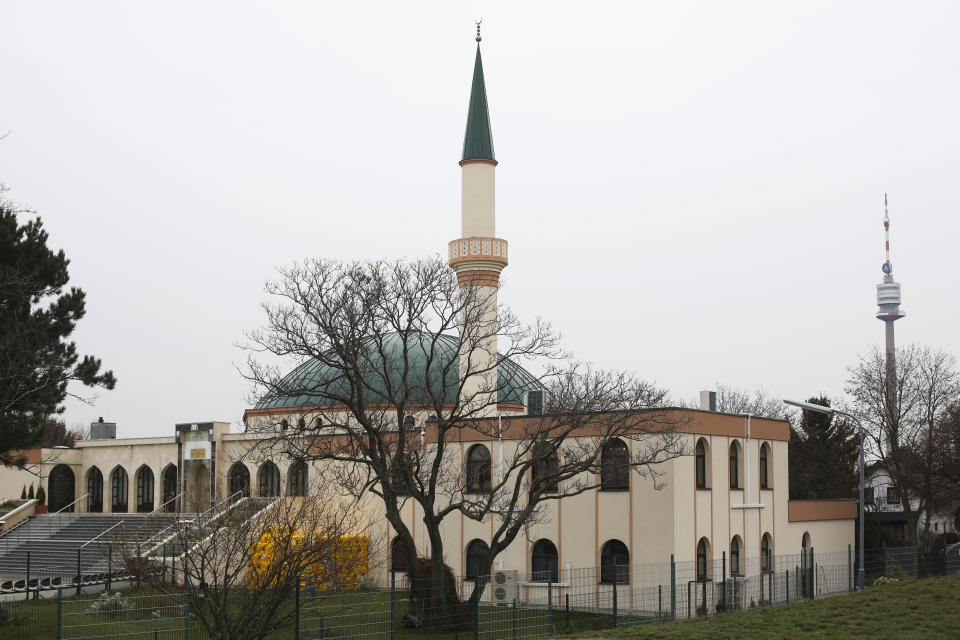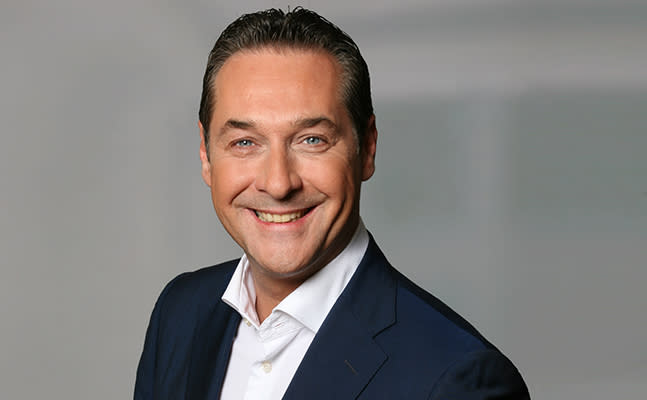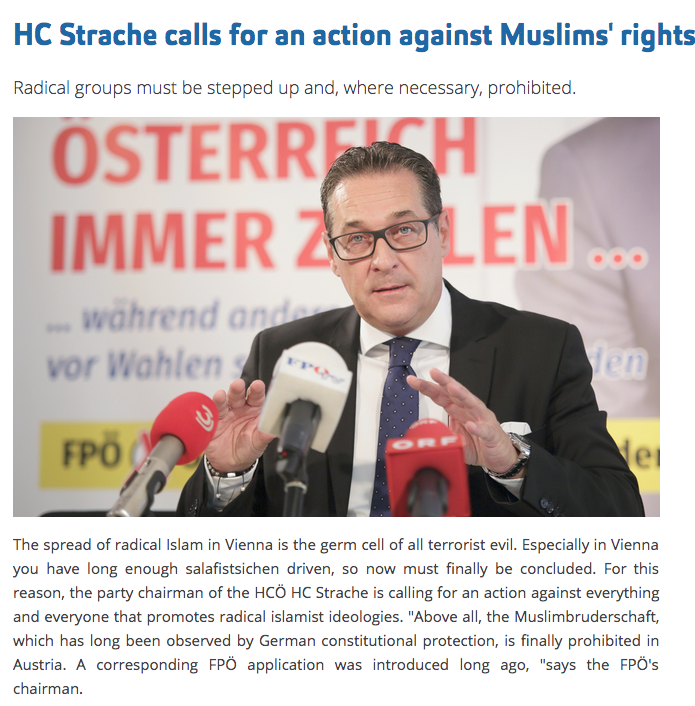The European capital where there are more Muslim than Catholic children in state primary schools

After the bombshell election result in Germany that saw a far-right party enter parliament for the first time in 60 years, the next European country to go to the polls is neighbouring Austria.
And one of the main issues that propelled the AfD to 94 seats in the federal parliament with 12.6 per cent of the vote is also very much at the heart of the election next door.
Islam is the fastest growing religion in Catholic-majority Austria with 700,000 Muslims now living in the country – twice as many as in 2001. In the capital Vienna, there are now more Muslim than Catholic children in state primary schools.
But many Muslims believe they are being increasingly discriminated against amid a backdrop of growing Islamophobia in the run-up to voting day on 15 October.
In a recent survey, almost a third of Austrians said that they would not like to live next to a Muslim.
The far right is set to make significant gains at the polls, as parties harness growing anti-Islam sentiment in their campaigns – including those that are more traditionally centrist.

The conservative People’s Party (OeVP) is currently topping the opinion polls as the country prepares to vote.
Even this traditionally centre-right party, which governed in coalition with the left-wing Social Democrats (SPO) from 2007-2017, is taking a hard line on immigration and the Muslim community.
Sebastian Kurz, the party’s popular new leader, is campaigning to slash benefits for migrants and shut down Muslim nurseries.
‘We don’t need them. There should be no Islamic kindergartens,’ Mr Kurz said earlier this summer.
His campaign website states the institutions ‘linguistically and culturally isolate children from the majority society and are an obstacle to them in the further course of life.’
He was also an instrumental force in bringing in the ban on burqas and niqabs in Austria, which will come into effect in October this year.
His party’s popularity has leapt under his leadership, spiking from 20-25% to a high of 35%.
MOST POPULAR STORIES FROM YAHOO UK:
Incredible moment angry school dad drives straight into teacher
Six controversial members of Germany’s far-right AfD – and what they believe
In pictures: These are the 10 unhealthiest countries in the world
Shayne Ward and Kim Marsh lead tributes to Coronation Street star Liz Dawn
Donald Trump ‘joked about making Princess Diana take an HIV test before sex’
The far-right Freedom part (FPOe) is battling for second place with the Social Democrats, giving them their best ever chance of entering government.

The FPOe claims that ‘Islam has no place in Austria’, and pledges to replace the country’s current ministry for integration with a ministry for the ‘protection of the homeland and dominant culture’.
Heinz Christian Strache, the party’s leader, has previously called for a law banning ‘fascistic Islam’ and prohibiting Muslim symbols, comparing the move to a current law banning Nazi symbols in Austria.
‘Let us put an end to this policy of Islamisation, otherwise we Austrians, we Europeans will come to an abrupt end.’ Strache said.
‘We need zero and minus immigration.’
The party’s website includes a statement from Mr Strache calling for ‘action against Muslims’ rights’

The party was founded by a group of former Nazis in the 1950s, but claims that their beginnings have no relevance to their current politics.
Vienna City councillor Omar al-Rawi, who has worked as an integration representative for Austria’s Islamic Community, told AFP: ‘When parties address the issue of Islam, it’s always in a negative context.
‘The populist undertone is always present. It’s a shame because Austria used to be a success model for how to deal with Muslims.
‘I think a majority of Muslims are worried about what direction the country is moving into.
‘Many are in a socially vulnerable category, and they wonder if their children will still have the same opportunities.’

 Yahoo News
Yahoo News 

